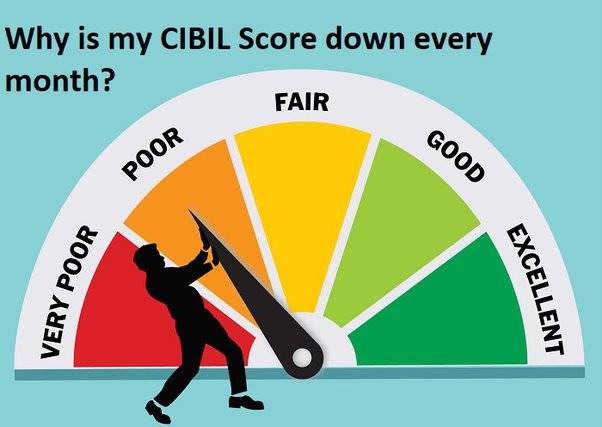Experiencing a default on loans or credit can be a significant financial setback, but it is not an insurmountable obstacle. Rebuilding credit after defaults requires strategic planning, disciplined financial habits, and patience. By following a structured approach, individuals can gradually restore their creditworthiness and secure a stable financial future. This article outlines essential steps to rebuild credit after defaults, offering practical advice for achieving long-term financial recovery. The first step in rebuilding credit is to understand your current financial status. Obtain a copy of your credit report from major credit bureaus such as Equifax, Experian, and TransUnion. Reviewing the report carefully helps identify any inaccuracies or discrepancies that may need to be addressed.
Understanding where you stand financially provides a foundation for formulating a plan to improve your credit. Errors on your credit report can significantly impact your credit score, so disputing any incorrect information is crucial. If you find any inaccurate entries, such as wrongly reported late payments or accounts that do not belong to you, dispute these errors with the credit bureaus. Providing evidence and following up diligently can help remove these inaccuracies, positively affecting your credit score. Developing and adhering to a realistic budget is crucial in managing your finances and avoiding further defaults. List all your income sources and monthly expenses to identify areas where you can cut back. Prioritize essential expenses like rent, utilities, and groceries while allocating a portion of your income to pay off outstanding debts. Sticking to a budget ensures that you live within your means and avoid accumulating additional debt. Tackling outstanding debts is vital in rebuilding your credit. Focus on clearing high-interest debts first, as they can quickly accumulate and become unmanageable. Consider negotiating with creditors to establish a feasible repayment plan or seek assistance from a credit counselling agency. Consistently making payments, even if they are small, demonstrates your commitment to improving your financial situation. Your payment history significantly influences your credit score. To rebuild your credit, make sure to pay all bills on time, including utility bills, rent, and any remaining debts. Setting up automatic payments or reminders can help you stay on track. Over time, a consistent record of on-time payments will reflect positively on your credit report.
Secured credit cards are an excellent tool for rebuilding credit. Unlike regular credit cards, secured cards require a cash deposit as collateral, which serves as your credit limit. Use the secured card responsibly by making small purchases and paying off the balance in full each month. This demonstrates responsible credit usage and gradually improves your credit score. If possible, become an authorized user on a family member’s or friend’s credit card. Ensure that the primary cardholder has a good credit history and makes timely payments. As an authorized user, the positive payment history associated with that account will be reflected in your credit report, helping to improve your score. Regularly monitoring your credit is essential in tracking your progress and identifying any potential issues early. Use free credit monitoring services or subscribe to a paid service that provides frequent updates. Staying informed about changes in your credit report allows you to take timely actions to maintain or improve your credit score.
While it may be tempting to apply for new credit lines, excessive credit inquiries can negatively impact your credit score. Each application results in a hard inquiry, which can lower your score temporarily. Only apply for new credit when necessary and opt for pre-qualification offers that do not affect your credit score. Rebuilding credit is a gradual process that requires time, persistence, and responsible financial behaviour. Avoid quick-fix schemes that promise instant results, as they are often scams. By consistently following good financial practices and being patient, you will see gradual improvements in your credit score. Another critical aspect of rebuilding credit is establishing a mix of credit types. A diverse credit portfolio, which may include instalment loans, such as car loans or mortgages, and revolving credit, like credit cards, can positively influence your credit score. However, it’s essential to manage these credit lines responsibly. Taking on more debt than you can handle will be counterproductive. Ensure that you can meet the repayment terms before adding new credit types to your financial profile. It’s also important to communicate with your creditors, especially if you foresee difficulties in making payments. Many creditors are willing to work with you if you proactively reach out and explain your situation. They may offer hardship programs, modified payment plans, or temporarily lower interest rates. By maintaining open lines of communication, you can avoid further damage to your credit score and potentially find manageable solutions during challenging times.
Moreover, consider seeking the advice of a financial counsellor. These professionals can provide personalized guidance tailored to your specific situation. They can help you develop a comprehensive plan to rebuild your credit, offer budgeting advice, and provide resources for debt management. Many nonprofit organizations offer free or low-cost credit counselling services, making professional help accessible to those who need it.
In conclusion, rebuilding credit after defaults is a challenging but achievable goal. By understanding your financial status, addressing inaccuracies on your credit report, developing a realistic budget, tackling outstanding debts, and establishing responsible financial habits, you can gradually restore your creditworthiness. Utilizing secured credit cards, becoming an authorized user, and regularly monitoring your credit will further support your efforts. Avoiding unnecessary credit applications and maintaining open communication with creditors are also crucial steps in this process. Patience, persistence, and a strategic approach are key to overcoming the setbacks of credit defaults and achieving long-term financial stability.
Also Read- https://settleloan.in/blog/settleloan/the-impact-of-student-loan-defaults-understanding-the-consequences-and-finding-solutions/
Get in touch with us today at www.Settleloan.in and embark on your path to financial freedom



